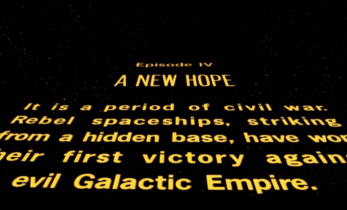Greater than 3 minutes, my friend!
I got a degree in Translation, and now? On being a translator in 2016
Some days ago I attended a great event for translation and interpretation professionals in Turin, held by University of Turin, Language Department. The title was “English in Italy. Translation and interpreting in educational and professional settings”. The topic has been analyzed and described in many aspects by excellent speakers. They were all scholars with different specializations and coming from various European universities, so the insights they gave us were global and multifaceted. English as a lingua franca (ELF) and English-Medium Instrument (EMI) are fascinating arguments. I learned about them some months ago and was eager to know more. A perfect occasion to carry on my CPD, meet colleagues, have a one day full immersion in the university world.
On my way home I started thinking about how academic world helps students turn into people that can make a living out of translation. In some fields this can happen quite easily or smoothly. You study physics, you spend hours studying theories and making experiments in a lab, then you look for a job in a company, where you will do basically the same: make hypothesis and verify them through experiments. But when it comes to become a translator, basically a freelance translator, that’s a different story. Due to that weird word: freelance. As far as I understood about academic training, university still now, in 2016, teaches translator to translate, to use the language, to understand source language, to communicate the right meaning. Excellent! But this is less than 50% of what being a freelance translator means! It looks as if scholars and professors were still living in a world of their own, detached from the real one. Concerned and interested in following the thread of their researches and theories about language in every possible aspects. But becoming a professional language expert working outside academic world requires a lot more!
First of all, students should be informed about the fact that only a few of them will deal with literary translations, which seems to be still the only (or main) kind of text they get familiar with during their studies. And that’s a hard path: they will have to learn how to deal with publishers, editors, literary agencies, talent scouts, etc.
Then there is the other universe: technical or commercial translators. Strange creatures that play a set of roles at the same time. Marketing skills are inevitable to find initial work and look for better occasions, seller skills are required to negotiate fair rates and be sure you get paid what you deserve, accountant skills are necessary to set your rates and verify you get paid, social communicator skills are needed to gain visibility and find the right place on the market. Then you have to be healthy, to resist stressful period and rush delivery; curious to discover and learn from every possible formal and informal training occasion; self-motivating, to endure famine periods and make the most out of them (believe me there are oceans of useful things you can do while not translating); resilient to face difficult situations. Not to talk about the ability to learn how to use CAT tools, to plan and care for your CPD, to find the right expertise field for you. They are solopreneurs working in translation field. Business people working on their own. Are students aware of this? When I started, I wasn’t. And I think that even 20 years after, the situation hasn’t changed much. The academic world is still too far from business.
As things are now in my country, Italy, university doesn’t seem focused on offering students a complete set of skills, above all practical ones, necessary to enter and stay healthy on the market. Some initiatives have been undertaken recently, but they are random events held by some universities, with no common initiatives or plan at government level. What do you think about it? How is university tackling this issue in your country?





Hi Silvia! Thank you for this post. You are absolutely right, when I first started as a freelancer, I faced so many challenges. I was good at translating but the marketing, accounting and other aspects were all new to me. I wish universities would teach students more about the industry of translation. I studied in Algeria and Jordan, and in both countries there is no real focus on how to actually work as a translator after you graduate.
Hi Fatima, I’m happy you found my post useful. Also it’s interesting for me to know how academic world prepare young translators in other countries and what is your experience so far. Thank you!
Hi Silvia, I think the situation is more or less the same in France. At the university, I was taught translation both by full-time professors who relied heavily on translation theory and by “actual” translators and/or interpreters who also shared their experience as businesswomen and men. This was a first step in the right direction, but we would have needed classes specifically aimed at freelancers.
They taught us how to make quotes and invoices, what they thought were reasonable rates for beginners, and what it was really like – the stress, long hours and droughts. Beyond that, not much. When asked how we were supposed to actually get some work or find our first clients, the answer was something along the lines of “Send your CV to translation agencies and wait for them to contact you.” A proper class on findind and reaching out to potential clients would have been welcome.
Hi Gwendoline, thank you for sharing your experience in French university. Yes, I agree with you on the fact that they should have taught more about how to run the profession, find your expertise field, face market challenges, stay connected to the industry, where to find good CPD programmes, etc… I will write more on this topic. Thank you for your interest 🙂
Hi Silvia, you are absolutely right! In Mexico is the same. In my university they don’t teach anything about prices and marketing, so when we all graduated (18 people) it was really hard, and still is, to launch our own careers.
I’ve just started my freelance career and it has been really difficult to me to get noticed and, mainly, to get paid fairly. They believed that since I just graduated, I shouldn’t ask much. I have accepted jobs at very low-rate because to me it is experience but I don’t know when to stop looking at it as experience and more as a real job.
Hi Erika. I’m glad you read my post. Actually the point of asking a fair rate is always a hot one. Agencies and end clients always press rates downwards, making you understand that if you don’t accept thir proposal they will ask to somebody else. Be bold, say no when you think your value is understimated. You studied a lot to get where you are now. Keep on studying and specializing. Bust ask to be paid what you deserve. I wish you all the best 🙂